IVF: Woman feels 'left behind' after treatment funding changes
- Published
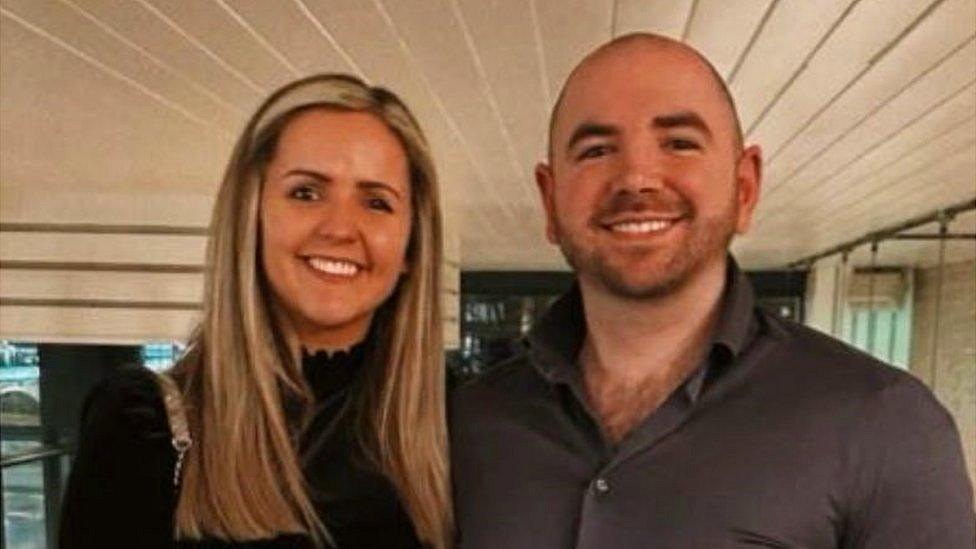
Dr Gabrielle Nugent-Stephens hopes to see the retrospective eligibility date extended to include more couples
A woman on a waiting list for publicly-funded IVF treatment has said she feels "left behind" after changes to NHS eligibility for free treatment.
Some women in Northern Ireland undergoing NHS fertility treatment will be given additional frozen embryo transfers under a new rule change.
However, only women who have been placed on the waiting list from October 2022 are eligible.
Dr Gabrielle Nugent-Stephens was placed on the list in June of that year.
"When we initially saw the press release we were really excited about the news because it seemed like we might have another chance," Dr Nugent-Stephens told the BBC's Good Morning Ulster programme.
"But when I submitted an enquiry to the regional fertility centre they called yesterday evening to confirm that we fell just outside the eligibility criteria, which is just heart-breaking."
The Department of Health said it understood there would be "disappointment among those who are outside the eligibility criteria".
'Mental impact'
Currently, women eligible for publicly-funded IVF in Northern Ireland are entitled to one fresh and one frozen embryo transfer.
This is even if the first transfer is successful.
Going forward, women who do not have a live birth with the first embryo transfer will be able to have further treatment.
They can use any additional frozen embryos until either the woman has a live birth, or has used up all embryos.
"I know it's a step in the right direction, but ultimately until we get those three funded cycles it's going to be very difficult for a lot of people to see that news and know they just don't fall under that criteria," Dr Nugent-Stephens said.
"There's already very strict criteria in place for IVF as well, so this just really exacerbates the mental impact as well.
"If we were to pursue a frozen embryo transfer ourselves with the regional fertility centre that's going to cost, according to their website, at the moment £1,395, whereas others are being given this opportunity in a funded cycle.
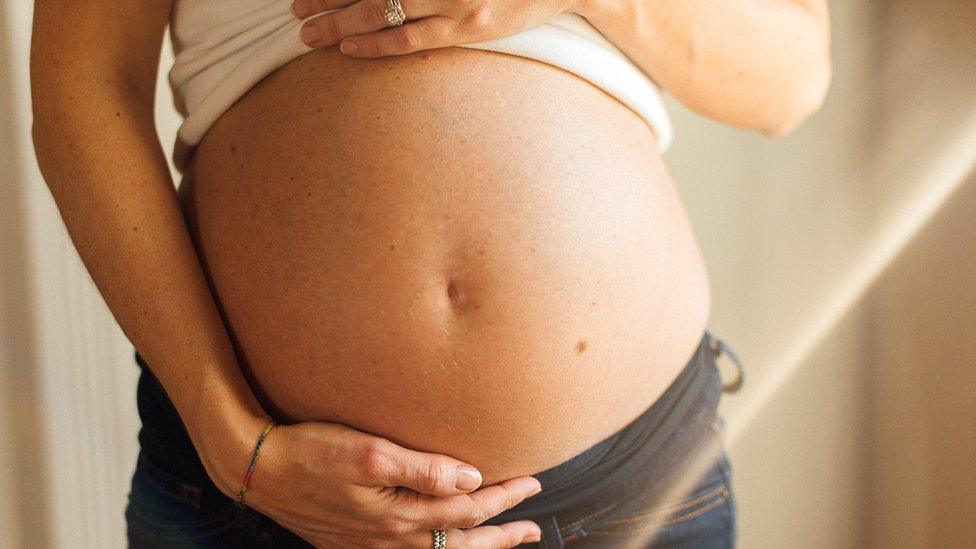
According to the NHS, about one in seven couples experience difficulties conceiving a child
"So it just seems really punitive that this is afforded to a select few.
"And the harsh reality is that while this is good news for some, it's going to be a huge setback in terms of the mental impact for those who had initially got their hopes up."
The Department of Health in Northern Ireland said a woman would be eligible "if she meets the published access criteria for IVF and has been placed on the waiting list for publicly-funded IVF/ICSI treatment on or after 1 October 2022".
"We understand that there will be disappointment among those who are outside the eligibility criteria," a spokesperson said.
"The increase in provision included a retrospective eligibility date of 1 October 2022 to allow more women to avail of further treatment, unfortunately it was not possible to extend the retrospective date further within the limited resources available."
Health Minister Robin Swann said the "initial increase to one full cycle for eligible women should represent a positive step forward".
He added: "There is also a retrospective eligibility date to allow more women to avail of further treatment under this new change."
According to the NHS, about one in seven couples experience difficulties conceiving a child.
In England and Wales, guidance from the National Institute for Health and Care Excellence is that women under 40 should be offered three cycles of IVF treatment on the NHS.
In Scotland, up to three cycles of treatment are provided.
'Not far enough'
Deborah Cross from the support group, Fairness in Fertility, said the latest move, while welcome, "still incrementally doesn't go far enough".
"It will not take into account those placed on the register pre-1 October 2022 meaning they will not be eligible for additional publicly-funded frozen embryo transfers," she said.
"Additionally this, sadly, does nothing for those couples who have remaining embryos in storage but who financially cannot envisage ever being able to move to transfer due to their current economic circumstances."
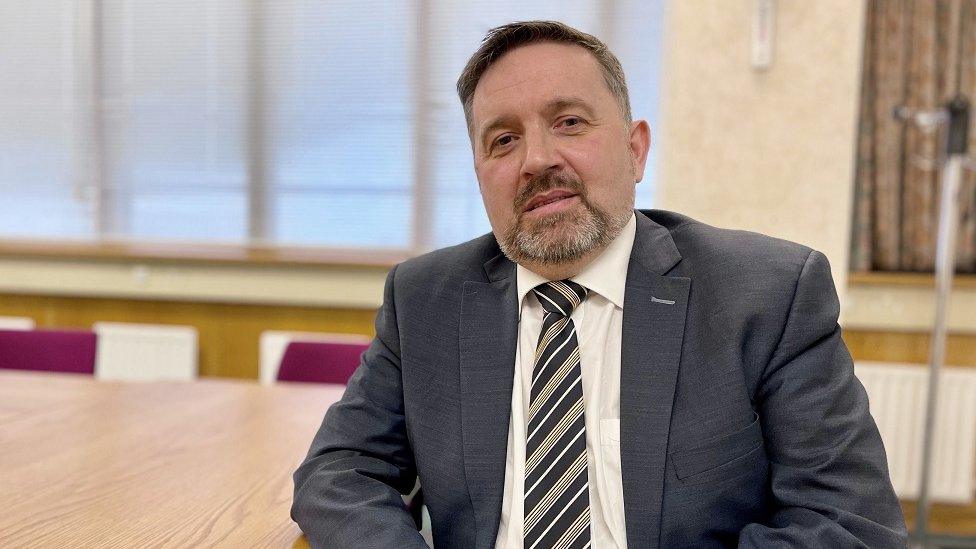
Health Minister Robin Swann said the initial increase to one full cycle for eligible women should represent a step forward
The New Decade New Approach, external (NDNA) deal in 2020 made a commitment to fund three NHS cycles of IVF treatment. However, that was never achieved after fertility treatment was affected by government funding cuts.
Mr Swann has said work is continuing planning for full implementation of the NDNA commitment.
The minister said there were "several challenges that need to be addressed before second and third IVF cycles can be phased", including increased capacity and specialist staff within the regional fertility centre.
He said further expansion to the service would require recurrent funding assurances which has not been possible to provide to date.
The Department of Health said a list of FAQs to help women determine if they are eligible for further treatment is available on the Regional Fertility Centre's website, external, which is run by the Belfast Trust.
Related topics
- Published5 July 2023
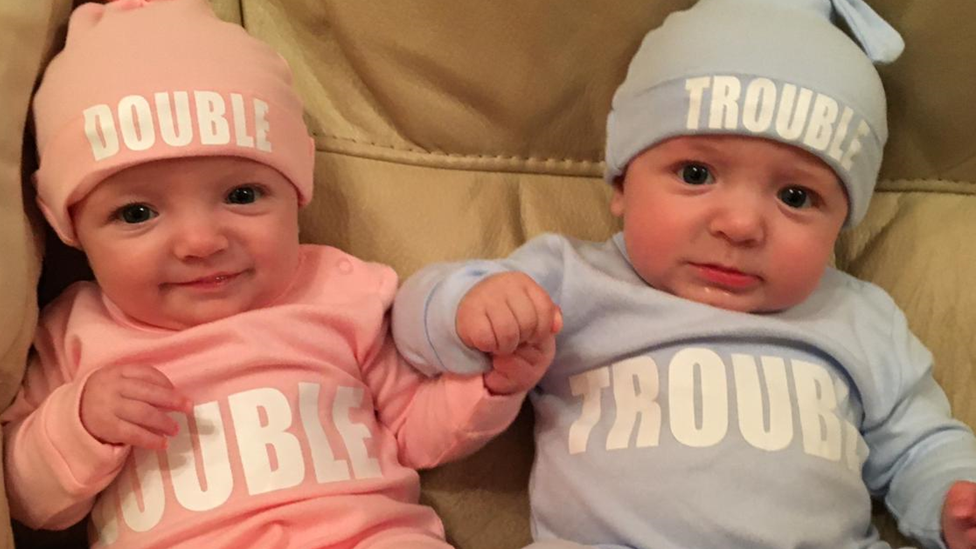
- Published3 July 2022
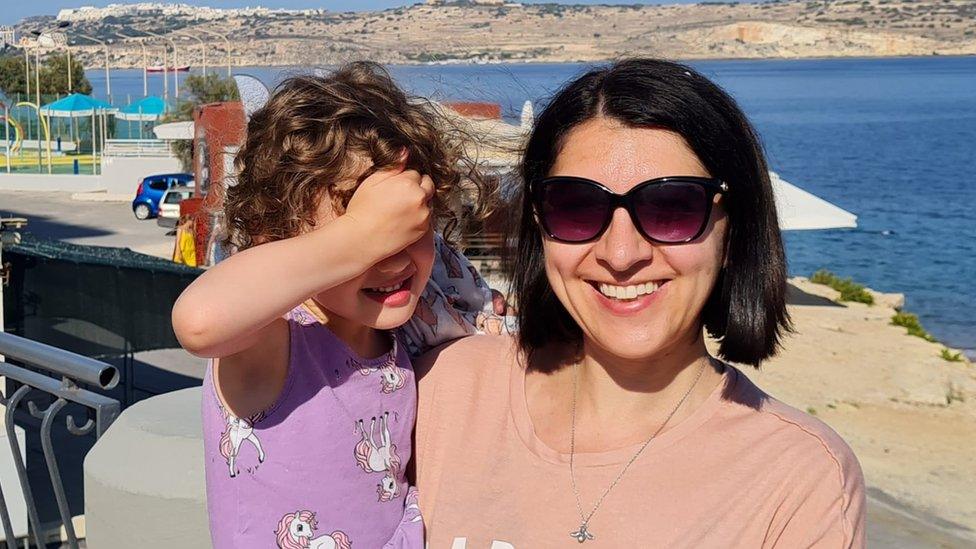
- Published16 July 2022
